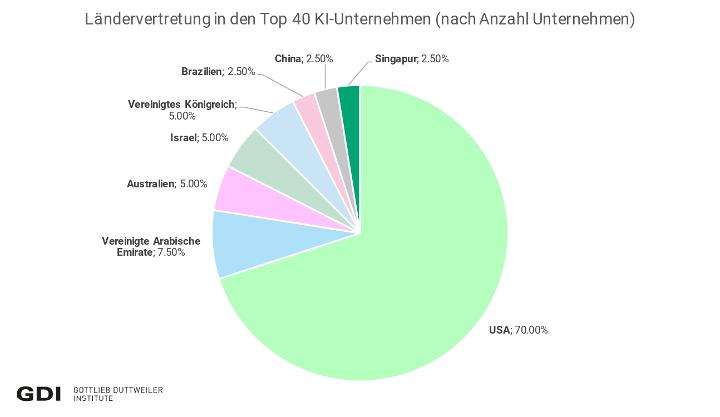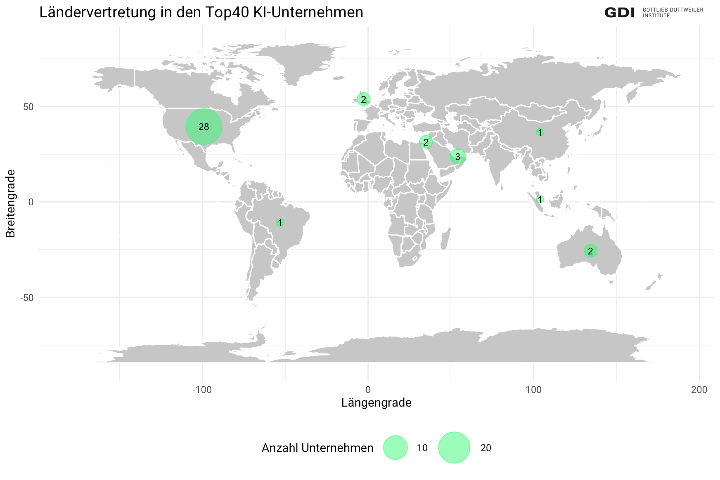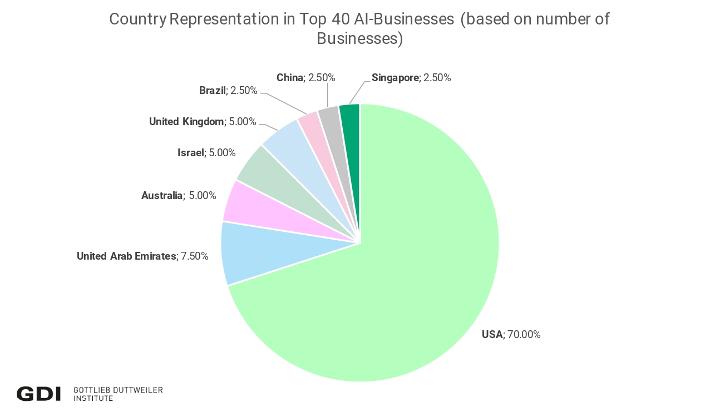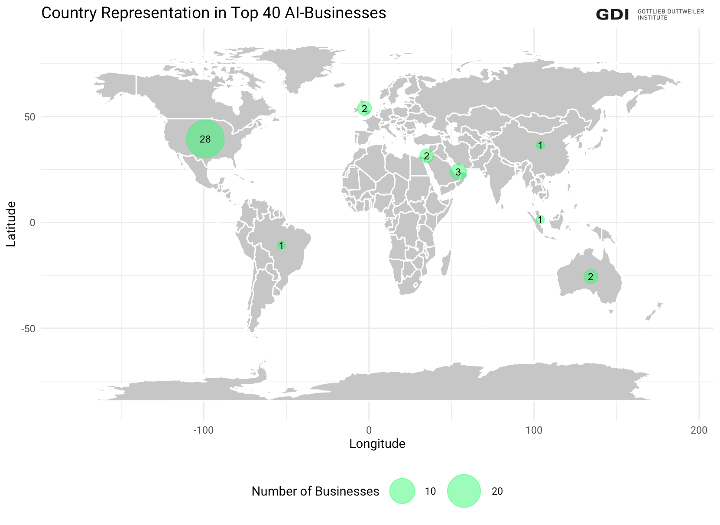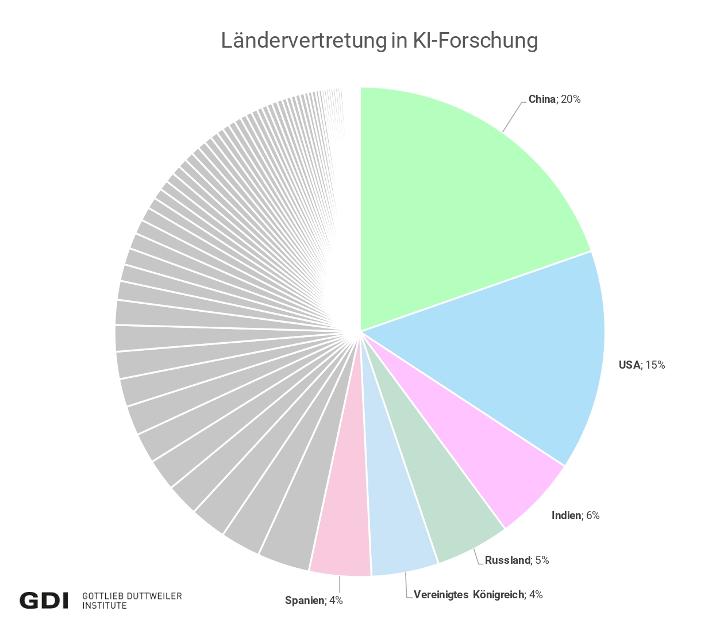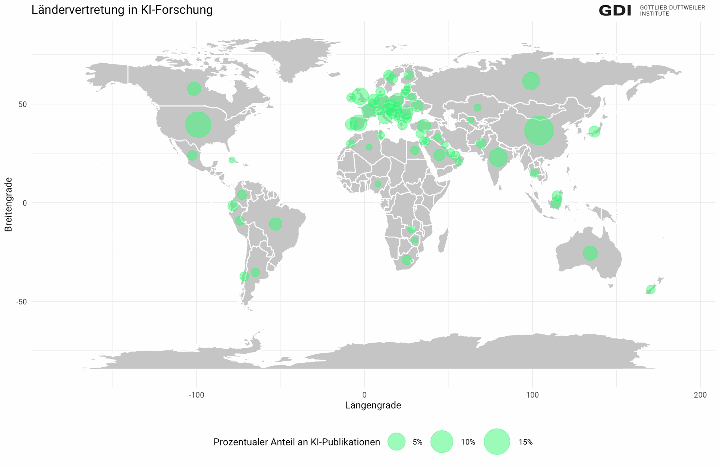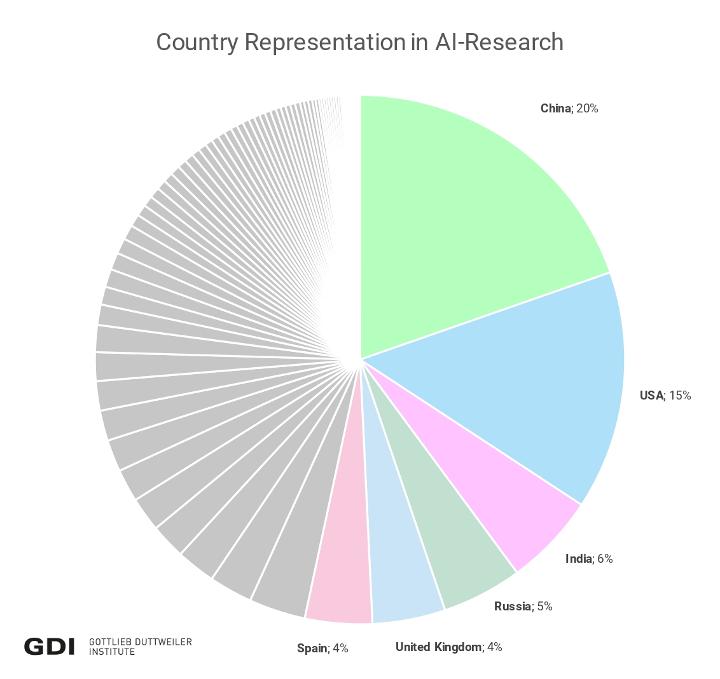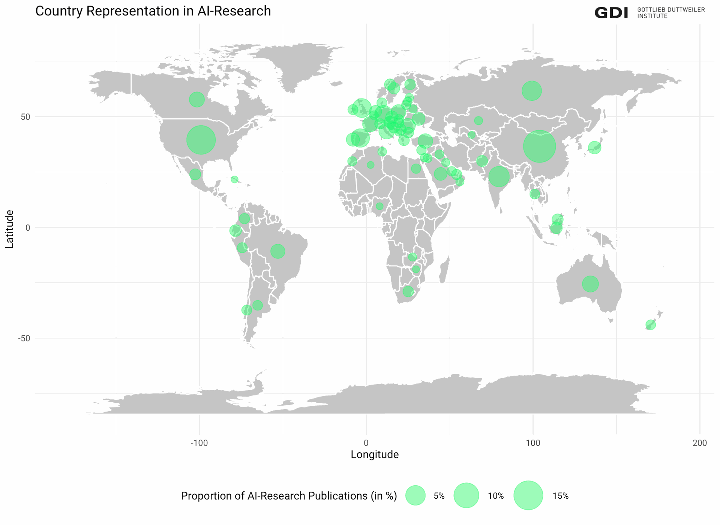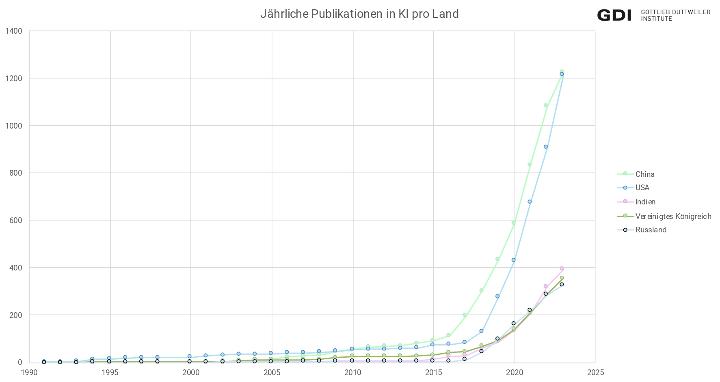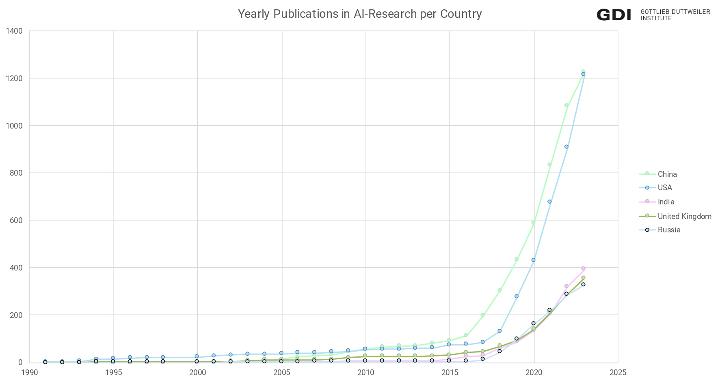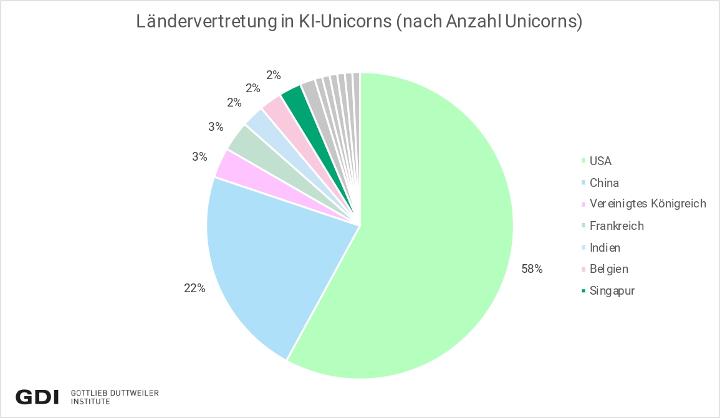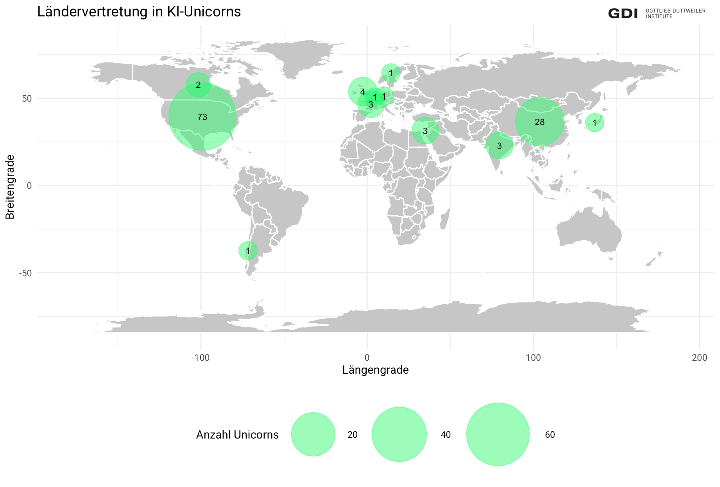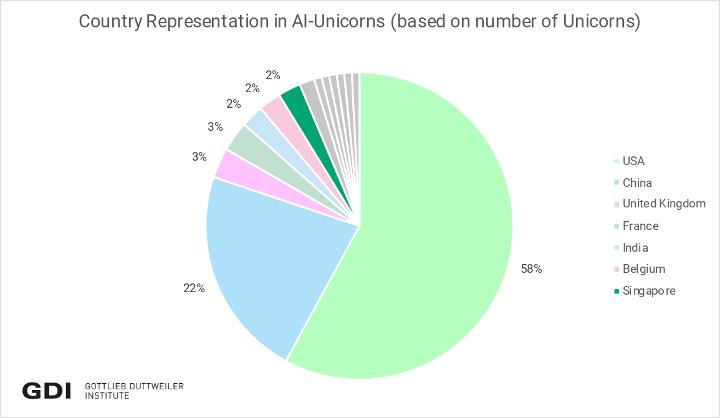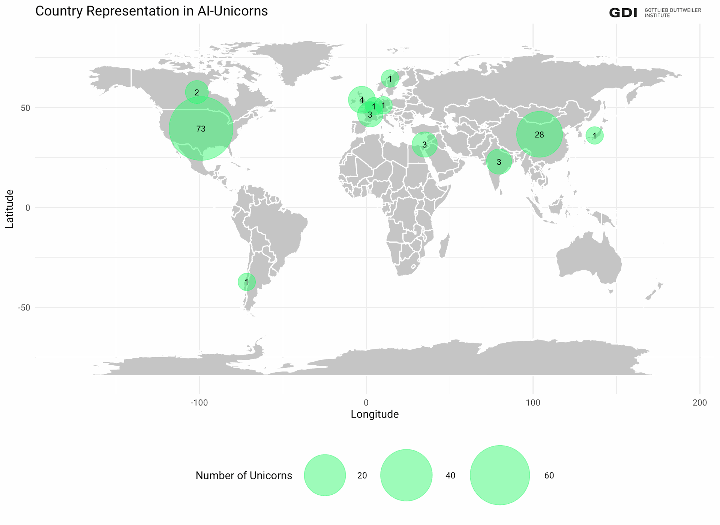Political scientist and renowned author Ian Bremmer divides today's world order into three distinct domains: a security order, an economic order and a digital order. The security order is and will probably remain dominated by a single country: the United States. On the other hand, the current economic order is more fragmented. The major powers (the US and China) are vying for the top position within this order. Other powers, like Europe or India, also have a say due to their size. In contrast to the other two orders, the digital order is still in its early stages. However, the developments in this order will significantly influence the trajectory of the other two.
Without a doubt, artificial intelligence (AI) has enabled major technological innovations in recent years. For instance, OpenAI, the company behind the globally used AI chatbot ChatGPT, has experienced revenue growth of 550% since ChatGPT's launch. Despite shrinking economic growth, the number of new AI startups increased in 2023, constituting the majority of all Y Combinator startups in the latter half of the year (Y Combinator being the largest US startup incubator). AI applications are popular and companies are currently dedicating significant resources to developing, deploying and refining such applications.
The landscape of AI companies is predominantly dominated by the US. The tech giants based there are already influential in the technology sector and enjoy a considerable lead in adopting AI applications. Among the top 40 companies by market capitalisation that work with or offer AI technologies to their customers, 70% are from the US. The remaining 30% are predominantly distributed among countries such as the United Arab Emirates, Singapore, the United Kingdom, Israel and China.
By contrast, the research landscape appears much more diversified. Of the 2000 most relevant AI studies in the Web of Science literature database between 1991 and 2023, approximately 20% were written by Chinese researchers (data from a bibliometric analysis of the Web of Science databas on the 2000 most relevant AI studies between 1991 and 2023). US authors rank second, with about 15% of AI publications. Following that, the distribution among countries is fairly even: India takes the third spot, with about 6%, closely followed by Russia, the UK and Spain, each representing more than 5% or 4% of publications.
China's position within AI research has not always been dominant. Only since 2010 has China surpassed the US in annual production of scientific studies on AI, becoming the frontrunner – a position it has held firmly until 2023.
Economists like Paul Romer have observed strong correlations between the intensity of research (and development) within a country and that country’s economic growth. Similarly, high research activity within a country's AI sector could serve as an appropriate indicator of the sector's growth. This implies that long-term AI technological leadership can only be ensured through sufficient investment in AI research.
China's high research activity in AI is expected to bring about significant growth within the AI sector. Data from today’s most successful AI-based Unicorns confirms this scenario. For example, the figure below shows the country representation of the top 126 successful AI unicorns in 2023. It is evident that Chinese companies, at approximately 22%, play a much more significant role among unicorns than in the representation of the largest AI companies by market capitalisation.
Ian Bremmer outlines various possible scenarios for the future development of the digital order. Given the aforementioned data, one of them appears particularly concerning: tech companies – who possess the technologies – will shape the digital landscape significantly and also determine the political agendas of national governments. This potential scenario could lead to a new Cold War, with the cultural West and East, led by the two major powers, the US and China respectively, standing in opposition. As innocent as this technology may seem, the ways in which it can manipulate us are more insidious – and the question of who controls it becomes more relevant and sensitive.
Countries are not alone in requiring an AI strategy. Every single company needs one. Decision-makers must understand what is technically possible, economically feasible and socially desirable. At the GDI Trend Day, you'll learn about the role your company can play in the digital order as well as how you can have a significant impact on this order.
